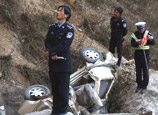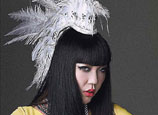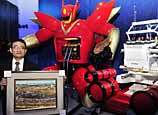
Zisiqiao, a once impoverished village in Zhejiang province where people used to fish to make a living, has now become the number one snake-breeding industry town in China. A step into the homes of any of the farming families here brings visitors eye-to-eye with thousands of some of the world's most feared creatures -snakes, many of them poisonous.
Villagers began to raise snakes in the 1970s, to processes snake bile, venom, skin, slough, oil and whip as herbal medicines to be sold in Guangdong, Guangxi, Jiangxi and many other major markets for Chinese medicine and dozens of pharmaceutical companies. They are favored by consumers because of the quality of the material and the village has become the country's largest snake breeding trade center.
Yang Hongchang, village leader who pioneered the enterprise of snake breeding thirty years ago and founded snake therapy, has been titled "King of Snake". Unlike the symbol of evil in the West, snakes in Yang's eyes are precious from head to tail and are like a natural medicine warehouse.
Yang suffered arthritis in his early years and none of the hospitals could cure the problem until a rheumatologist told him to eat snakes. After he became well again, he devoted himself to the snake industry and hoped to use his experience to help more people.
In 1985, Yang started selling snakes he caught in the area to animal vendors. He soon began to worry he would run out of wild snakes and began researching on how to breed snakes at home.
Three years later, Yang successfully developed a dinodon rufozonatum, or red-banded snake through artificial incubation technology with a high survival rate and the formation of a complete set of artificial breeding, hatching, processing procedures and promoted it to the whole village. The technology is still leading the field in snake breeding.
Yang started his own snake company in the village in the 1990s. Today, more than three million snakes are bred in the village every year by 800 farmers. "Our original breeding method has been approved and recognized by the province and the county. They see us as the corporation working with the farming families. So the company researches on the snakes and they hand them over to the farms for breeding," Yang said.
Yang also built a snake museum, aiming to spread snake knowledge and its medicinal value to the public and to conduct snake collection, protection, research, exhibition, treatment and services for aquaculture training.
As the Year of the Snake approaches, Zisiqiao, the snake town of China is set to see a rise in its profits as the demand for the serpent soars.
















 Moments that melt your heart during the Spring Festival travel rush
Moments that melt your heart during the Spring Festival travel rush


![]()
